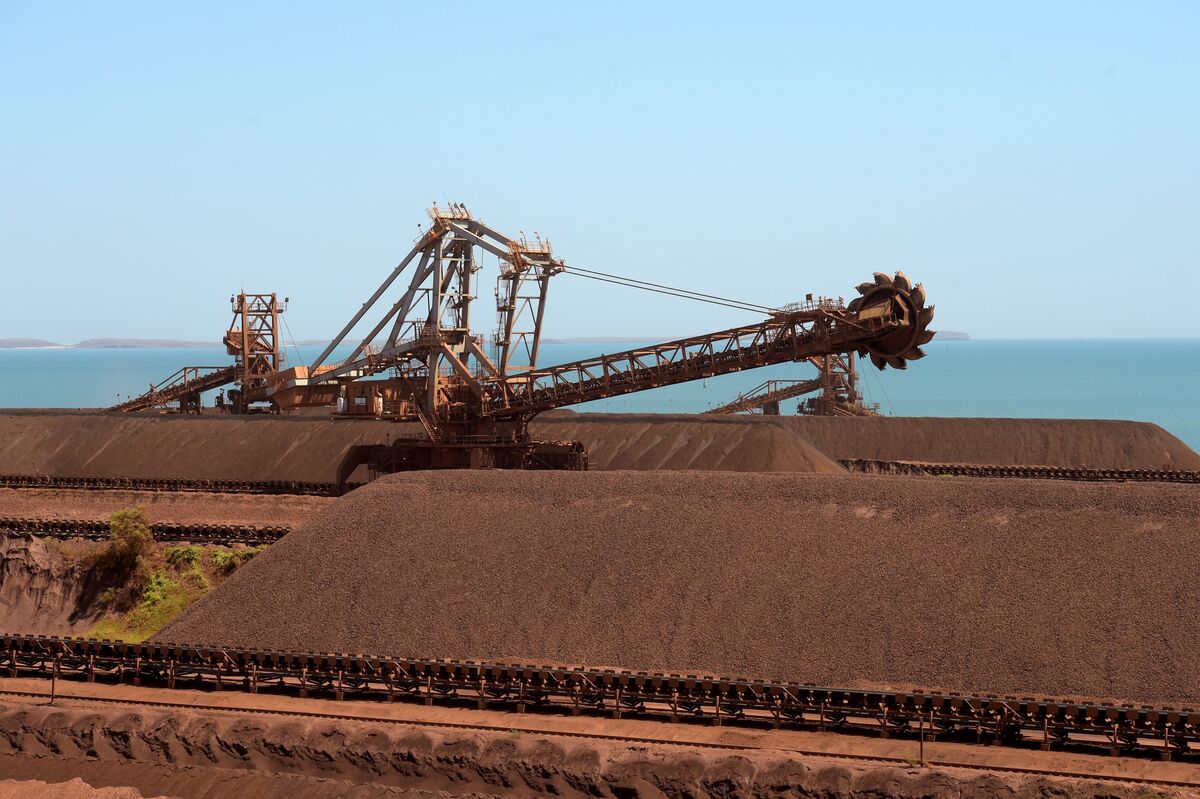Title: Rio Tinto Cyclone Disruption: Iron Ore Shipments Face Delays
Meta Description: Cyclones lash Australia, impacting Rio Tinto's iron ore exports. Learn about the extent of the disruption and its global market implications.
Editor's Note: Severe weather events have significantly impacted Rio Tinto's iron ore operations. This article details the challenges and their consequences.
Why It Matters: Rio Tinto is a major global iron ore producer. Disruptions to its supply chain affect steel production worldwide, impacting construction, manufacturing, and infrastructure projects globally. This article provides crucial insights into the immediate and potential long-term effects of these weather-related disruptions on the iron ore market and the global economy. Keywords included: Rio Tinto, iron ore, cyclones, Australia, supply chain disruption, shipping delays, commodity prices, global economy, mining, weather impact, Pilbara region.
Key Takeaways:
| Impact | Detail |
|---|---|
| Shipping Delays | Significant delays reported due to port closures and hazardous conditions. |
| Production Slowdowns | Mining operations temporarily halted due to extreme weather. |
| Price Volatility | Potential for iron ore price fluctuations due to supply chain uncertainty. |
| Global Economic Impact | Ripple effects felt across various industries reliant on iron ore. |
Rio Tinto Cyclone Disruption
The Pilbara region of Western Australia, home to several major Rio Tinto iron ore operations, has been severely impacted by a series of powerful cyclones. These severe weather events have led to significant disruptions in iron ore shipments, raising concerns about global supply chains and commodity prices.
Key Aspects:
- Port Closures: Cyclones have resulted in the temporary closure of several key ports used for exporting iron ore, causing significant backlogs in shipments.
- Infrastructure Damage: High winds and heavy rainfall have the potential to damage port infrastructure, further exacerbating delays and potentially impacting long-term operational capacity.
- Mining Operations: Mining activities at several sites have been temporarily suspended due to safety concerns related to the extreme weather conditions. This reduces the volume of iron ore available for export.
- Shipping Delays: Existing shipments have been delayed or rerouted, adding to the overall disruption to the supply chain. This impacts delivery schedules for steelmakers globally.
Impact on Shipping and Logistics
The impact on shipping and logistics is substantial. Port closures and hazardous sea conditions have led to significant delays in vessel departures. This not only affects Rio Tinto's immediate shipment schedule, but also creates a ripple effect throughout the global supply chain. Steel mills reliant on timely delivery of Rio Tinto's iron ore face potential production shortfalls, potentially leading to higher steel prices and delays in construction and manufacturing projects.
Global Market Implications
The disruption to Rio Tinto's iron ore shipments has the potential to significantly impact global iron ore prices. Reduced supply in the face of consistent demand could lead to a price increase, affecting various downstream industries. The magnitude of this price increase will depend on several factors including the duration of the disruption, the extent of infrastructure damage, and the ability of Rio Tinto to quickly resume full operations.
FAQ
Introduction: This section addresses frequently asked questions regarding the impact of cyclones on Rio Tinto's iron ore operations.
Questions:
- Q: How long will the shipping delays last? A: The duration of the delays depends on the severity of the damage and the speed of repairs and recovery efforts. Precise timelines remain uncertain.
- Q: Will this affect the price of steel? A: Yes, reduced iron ore supply could lead to higher steel prices.
- Q: What measures is Rio Tinto taking to mitigate the impact? A: Rio Tinto is likely undertaking damage assessments, implementing repair strategies, and prioritizing safe resumption of operations.
- Q: Are there alternative sources of iron ore? A: Yes, but limited alternative sources may not fully compensate for the disruption in supply from Rio Tinto.
- Q: What are the long-term consequences? A: Long-term impacts depend on the scale of infrastructure damage and the overall resilience of the supply chain.
- Q: How significant is Rio Tinto's role in the global iron ore market? A: Rio Tinto is one of the world's largest iron ore producers, making disruptions to its operations significant for the global market.
Summary: The FAQ section highlighted the uncertainties surrounding the duration of the disruptions and the potential for price increases in steel due to reduced iron ore supply.
Tips for Managing Supply Chain Risks
Introduction: This section offers insights on managing supply chain risks, especially those related to weather events.
Tips:
- Diversification: Diversify sourcing to reduce reliance on a single supplier.
- Risk Assessment: Conduct regular risk assessments to identify potential vulnerabilities.
- Contingency Planning: Develop robust contingency plans to mitigate the effects of disruptions.
- Insurance: Secure adequate insurance coverage to protect against financial losses.
- Real-time Monitoring: Utilize real-time data and monitoring systems to track weather patterns and potential disruptions.
- Communication: Maintain clear and open communication channels with suppliers and customers.
Summary: These tips emphasize the importance of proactive risk management strategies in minimizing the negative impacts of unexpected disruptions to global supply chains.
Summary
This article explored the significant disruptions caused by cyclones to Rio Tinto's iron ore shipments. The analysis highlighted the potential for shipping delays, production slowdowns, price volatility, and wider global economic impacts. The consequences underscore the importance of resilient supply chains and effective risk management strategies in the face of increasing climate-related challenges.
Closing Message: The impact of these cyclones serves as a stark reminder of the vulnerability of global supply chains to extreme weather events. Proactive measures to build resilience and mitigate future risks are crucial for the stability of the global economy.

